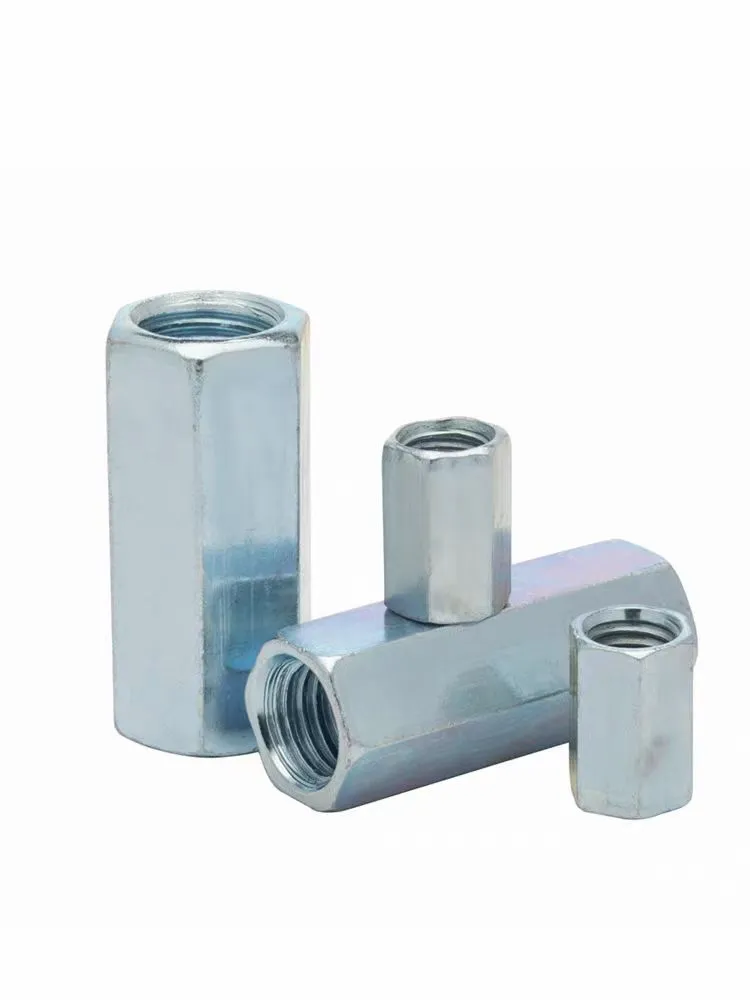

stud bolt 1
Dis . 05, 2024 14:33 Back to list
stud bolt 1
Understanding Stud Bolts Essential Components in Modern Engineering
In the world of engineering and manufacturing, the significance of reliable fastening systems cannot be overstated. Among the various types of fasteners available, stud bolts have emerged as a crucial component, playing a vital role in ensuring the structural integrity and longevity of mechanical assemblies. This article explores the fundamentals of stud bolts, their applications, variations, and the factors to consider when choosing the right stud bolt for your project.
What is a Stud Bolt?
A stud bolt is a type of fastener that consists of a long cylindrical rod with threads on both ends. Unlike conventional bolts, which have a head on one end, stud bolts are designed to be threaded along their entire length, allowing for versatile installation options. Typically, a nut is used to secure the stud bolt in place, providing a highly adaptable fastening solution that can accommodate a variety of joint configurations.
Applications of Stud Bolts
Stud bolts are widely used across numerous industries, including construction, manufacturing, oil and gas, and automotive. Their versatility makes them suitable for various applications, such as joining structural elements, securing machinery, or connecting pipes in high-pressure systems. In the oil and gas sector, for instance, stud bolts are critical for maintaining the integrity of pipelines and pressure vessels, where they must withstand extreme temperatures and pressures.
Furthermore, stud bolts are often used in flanged connections, providing a secure method of fastening two components together. This is particularly valuable in situations where disassembly is required for maintenance or inspection, as stud bolts facilitate easy removal without damaging the surrounding components.
Types of Stud Bolts
Stud bolts are available in various types, each designed for specific applications and requirements. The most common types include
1. Full Threaded Stud Bolts These bolts have threads that extend the entire length, allowing for maximum engagement and flexibility in applications.
2. Partially Threaded Stud Bolts Featuring a blank section in the middle, these bolts provide additional strength in the unthreaded area, making them ideal for high-stress applications.
3. Double End Studs With threads on both ends and a non-threaded section in the center, these studs are often used in flanged connections.
stud bolt 1

4. Tension Bolts These bolts are specifically designed to hold tension and are commonly found in applications where dynamic loads are present.
Selecting the appropriate type of stud bolt is crucial for ensuring the performance and reliability of the assembly.
Factors to Consider When Choosing Stud Bolts
When selecting stud bolts for a project, several factors come into play
1. Material Stud bolts can be made from various materials, including steel, stainless steel, and other alloys. The choice of material is often dictated by the specific environmental conditions, such as exposure to corrosion or high temperatures.
2. Size and Length The dimensions of the stud bolt must be compatible with the components being fastened. It's essential to assess the thickness of the materials being joined and choose an appropriate length for effective engagement.
3. Thread Pitch The thread pitch refers to the distance between threads. A finer pitch allows for more adjustment, while a coarse pitch provides greater holding power. Understanding the thread requirements is vital for achieving the desired clamping force.
4. Load Requirements Different applications place varying levels of stress on fasteners. Evaluating the load requirements is essential in selecting a stud bolt that can safely withstand the anticipated forces.
5. Standards and Certifications Many industries have specific standards and certifications for fasteners. It’s important to ensure that the selected stud bolts meet these requirements to guarantee safety and reliability.
Conclusion
Stud bolts are a fundamental element in the world of engineering and manufacturing, providing a robust and versatile solution for fastening components in various applications. Their unique design and adaptability make them suitable for a wide range of industries, particularly in high-stress environments where safety and reliability are paramount. By understanding the different types of stud bolts, their applications, and the factors to consider when selecting them, engineers and manufacturers can ensure they choose the right fastening solutions for their projects, ultimately contributing to greater efficiency and safety in their operations.
Latest news
-
Hot Dip Galvanized Bolts - Hebei Longze | High Strength, Corrosion Resistance
NewsAug.01,2025
-
High-Strength Hot Dip Galvanized Bolts - LongZe | Corrosion Resistance, Custom Sizes
NewsAug.01,2025
-
Best Self Tapping Screws for Drywall - Fast & Secure Installation
NewsJul.31,2025
-
High-Strength Hot Dip Galvanized Bolts-Hebei Longze|Corrosion Resistance&Customization
NewsJul.31,2025
-
Hot Dip Galvanized Bolts-Hebei Longze Metal Products|Corrosion Resistance&High Strength
NewsJul.31,2025
-
Hot Dip Galvanized Bolts-About LongZe|High Strength, Corrosion Resistance
NewsJul.30,2025

